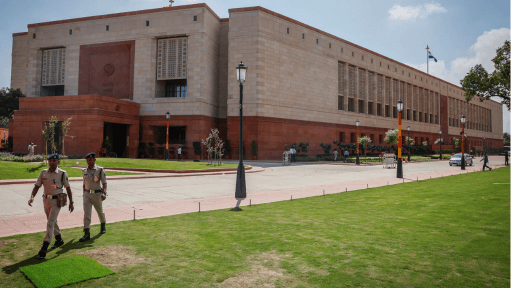
India Overhauls Criminal Laws: New Framework Enhances Protections, Updates Procedures
Sweeping changes modernise justice system and expand police powers
India has undertaken a significant legislative overhaul with the introduction of the Bharatiya Nyay Sanhita (BNS), the Bharatiya Nagarik Suraksha Sanhita (BNSS) and the Bharatiya Sakshya Adhiniyam (BSA).
These new laws, set to replace the Indian Penal Code (IPC), Code of Criminal Procedure (CrPC) and Indian Evidence Act respectively, aim to modernise the criminal justice system and address contemporary legal challenges.
Importance of the Amendments
The primary objective of these amendments is to update the colonial-era laws that have governed India's criminal justice system for over a century. By addressing modern crimes and incorporating contemporary judicial practices, these new laws aim to enhance the efficiency, responsiveness, and fairness of the legal system.
The Indian Penal Code (IPC)
The IPC, enacted in 1860, has been the foundation of criminal law in India. It defined various offences and prescribed punishments but lacked provisions for many modern crimes.
Changes in the Bharatiya Nyay Sanhita (BNS)
* Modern Crimes: The BNS introduces provisions for cybercrimes, environmental offences and economic crimes. It criminalises actions like identity theft, online harassment and financial fraud.
* Protection for Women and Children: The BNS consolidates offences against women and children, providing stringent penalties for crimes like sexual harassment and child exploitation. It also criminalises sexual intercourse under false promises of marriage, employment, or promotion.
* Community Service: Introduced as a punishment for minor offences, community service reflects a shift towards a reformative approach.
* Reclassification of Offences: Several offences have been reclassified and renumbered. For instance, murder is now under Section 101, and sedition is under Section 150.
The Code of Criminal Procedure (CrPC)
The CrPC, established in 1973, outlined the procedural aspects of criminal law, including investigation, arrest, bail, and trial procedures.
Changes in the Bharatiya Nagarik Suraksha Sanhita (BNSS)
* Forensic Investigations: Forensic investigation is mandatory for offences punishable with seven years of imprisonment or more, enhancing the quality of evidence.
* Digital Procedures: Trials, inquiries and proceedings can be conducted electronically, modernising the judicial process and speeding up case resolution.
* Detention and Custody Rules: The BNSS modifies rules related to detention and custody, potentially expanding police powers and addressing issues like absconding offenders.
The Indian Evidence Act
The Indian Evidence Act of 1872 defined the rules of evidence admissibility and the types of evidence acceptable in court.
Changes in the Bharatiya Sakshya Adhiniyam (BSA)
* Electronic Evidence: The BSA includes provisions for the admissibility of electronic and digital evidence, reflecting the importance of technology in modern legal proceedings.
* Timelines for Judicial Processes: The BSA sets specific timelines for various judicial procedures, aiming to reduce delays and enhance the efficiency of the justice system.
Changes in the Power of Police
Increased Detention Periods: The BNSS allows for extended periods of police custody, which can be authorised in parts during the initial 40 or 60 days of the 60- or 90-day period of judicial custody. This change potentially expands police powers, allowing for more extended interrogation periods.
* Forensic Evidence Collection: Police officers now have broader authority to request medical examinations and collect forensic evidence, which includes taking finger impressions and voice samples from individuals not under arrest. This aims to improve the quality and integrity of evidence collected during investigations.
* Handling of Proclaimed Offenders: If a proclaimed offender absconds to evade trial, the BNSS permits the trial to be conducted and judgement to be pronounced in the absence of the offender. This provision ensures that justice is not delayed due to the offender's evasion.
* Electronic and Digital Evidence: Police officers are empowered to collect and present electronic communication devices likely to contain digital evidence, ensuring comprehensive and modern investigative techniques.
Grey Areas and Challenges
* Implementation and Enforcement: Effective implementation and enforcement of these new laws remain a significant challenge. Law enforcement agencies need adequate training and resources to adapt to these changes.
* Judicial Interpretation: The success of these laws will heavily depend on judicial interpretation. Ambiguities in the provisions could lead to varied interpretations, impacting the consistency of justice delivery.
* Balancing Modernity and Tradition: The new laws aim to modernise the legal framework while respecting traditional values, a complex balancing act in a diverse society like India.
How the New Laws Will Help Citizens
* Enhanced Protection: The new laws provide enhanced protection for vulnerable populations, including women and children, by introducing stricter penalties for crimes against them.
* Efficient Justice: By modernising procedural laws and incorporating technology, the new laws aim to expedite the judicial process, reducing delays and ensuring timely justice.
* Addressing Modern Crimes: The inclusion of provisions for cybercrimes, environmental offences and economic crimes ensures that the legal system is equipped to handle contemporary challenges effectively.
Conclusion
The introduction of the BNS, BNSS, and BSA represents a significant step towards creating a more responsive, efficient, and fair criminal justice system in India. These laws address the shortcomings of the colonial-era legal framework and incorporate modern legal practices to better serve the needs of citizens in the 21st century.